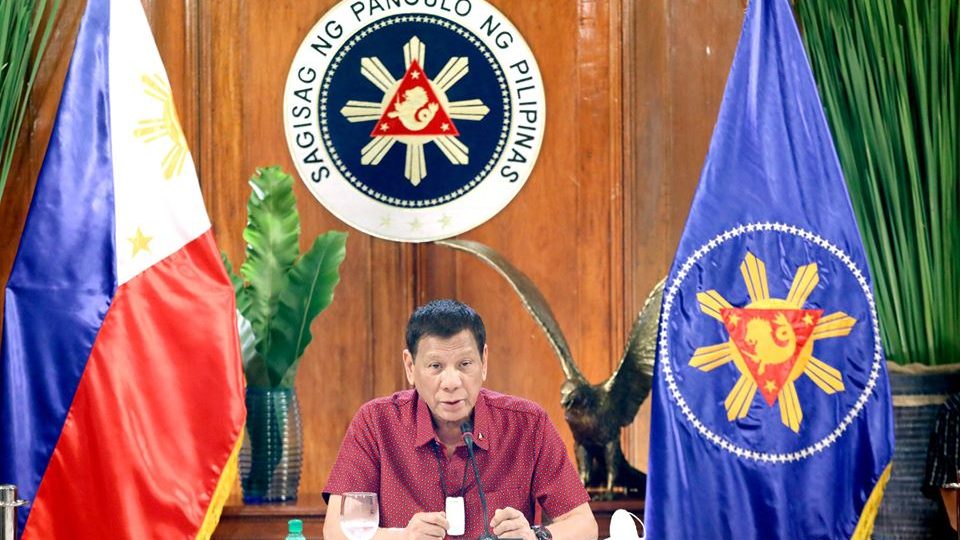President Rodrigo Duterte supports freedom of expression, despite the conviction of journalist Maria Ressa, founder of the anti-government news website Rappler.
Harry Roque, the president’s spokesman, said today in English and Filipino in his virtual presser, “He believes in free thinking and [free] speech. He believes that a government official should not be onion-skinned if he is criticized by the public, especially if this comes from the media.”
Read: BREAKING: Rappler founder Maria Ressa found guilty of cyberlibel
Shortly after her verdict, Ressa said that her conviction was a “cautionary tale” for other Filipino journalists, and was meant to scare those who are critical of the government.
Roque said Ressa’s warning had no basis because the president supported a Davao City-based radio journalist named Alexander Adonis who sought to nullify the Philippines’ libel laws before the United Nations Commission on Human Rights. Adonis was convicted of libel in 2007 after alleging that former Congressman Prospero Nograles, Duterte’s political rival, was caught having an affair with a married woman.
“She’s barking at the wrong tree. The president supported Alexander Adonis when he went to the UN Human Rights Committee. What evidence does she need to understand that one of the staunchest supporters of freedom of expression and freedom of the press is the president who, in his entire career, never filed a libel case against anyone,” Roque said.
Ressa, along with former Rappler writer Reynaldo Santos, was sentenced to at least six months in prison for a 2012 report which alleged that businessman Wilfredo Keng loaned vehicles to the late former Chief Justice Renato Corona, who was impeached for undeclared wealth. Keng has denied this allegation and filed a complaint five years after the publication of the article.
Republic Act 10175 or the Cybercrime Prevention Act of 2012, which the prosecution used as its basis for the case, was signed on Sept. 12, 2012 — four months after the Keng article was first published. The government said that Rappler could still be indicted because the article was supposedly republished in February 2014 due to typographical errors.
Meanwhile, various organizations expressed their support for Ressa, whose conviction, they said, was an attack on press freedom in the Philippines. The Society of Publishers in Asia said the verdict “appears to be politically motivated payback for Ressa’s and Rappler’s dogged reporting” of the various controversies hounding Duterte’s government, including the bloody drug war.
“The fact that the article in question was published before the relevant cyber libel law existed, then deemed to be ‘re-published’ when a typo was corrected, demonstrates how weak and absurd the case against Ressa and Santos actually is,” the organization said in a statement.
Non-profit organization Human Rights Watch also slammed the Manila court’s conviction of Ressa, with Deputy Asia Director Phil Robertson saying that the verdict highlights the ability of the Duterte government “to manipulate the laws to go after critical, well-respected media voices, whatever the ultimate cost to the country.”
“The Rappler case will reverberate not just in the Philippines, but in many countries that long considered the country a robust environment for media freedom,” Robertson added.
Rappler was once called a “fake news” outlet by Duterte when it published a 2018 article which said his then-assistant and now Senator Christopher “Bong” Go intervened during the billion-peso procurement of Combat Management Systems for the Philippine Navy.




